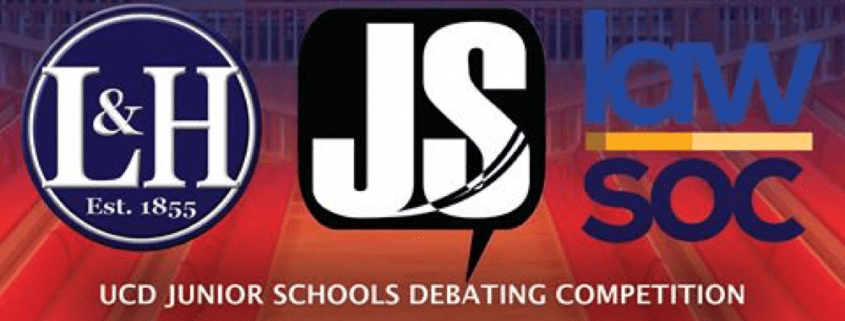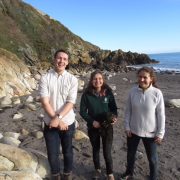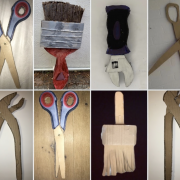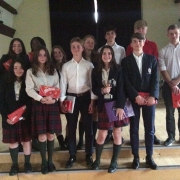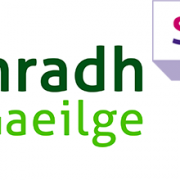Junior Debating Team
Public speaking and debating are important part of the College’s extracurricular programme. Below, Form III pupil Phoebe Grennell gives an account of the progress of our Junior Debating Team over the past month.
Last month the Junior Debating Team attended a debating workshop in Belvedere College. The pupils who took part were Emma Hinde, Raphaella Ihuma, Charlotte Moffitt, Maybelle Rainey, Ailbhe Matthews, Éile Ní Chíchnáin and myself, Phoebe Grennell.
When we arrived at Belvedere College, we were warmly welcomed and were taken to a large lecture hall where we met up with some debating teams from other schools. Many of us, myself included, had never debated before. The aim of the workshop was to introduce us to debating and to give us some introductory skills and tips.
A kind lady introduced herself and confidently started speaking to us about debating. She gave us some good tips and advice on how to write speeches and to deliver them. We learned that the objective of a debate is to prove how the principles and practicalities of your side of the motion is true. We were given some tips.
- Keep speeches to a minimum, no more than four minutes long.
- Never read your speech, engage with your audience with eye contact.
- The speech should present a cohesive case containing three main points of information (POIs).
- Each POI needs the same amount of time.
- Analyse and research each POI before the debate. This will involve asking why the points are relevant and then answering this question. This will help address counter arguments.
- Use persuasive language.
- Give lots of examples but no personal antidotes.
- Use structure when flagging points (a) say what you are going to say (2) say it (3) say what you’ve said.
- Use structure when flagging points – say what you are going to say, say it and then say what you’ve said.
- Remain objective and calm
This workshop was interesting and we learned a lot. For anyone getting involved for the first time, debating helps improve confidence in public speaking as well as being a good way to keep us up to date with current events and form opinions about them. Our first debate followed two weeks later in UCD where we were able to show what we learnt from the workshop and were able to use these tips in our debates. The topic for our next debate is ‘Why there should be a sugar tax’. It has been a good experience so far and I look forward to using these skills in the future.

